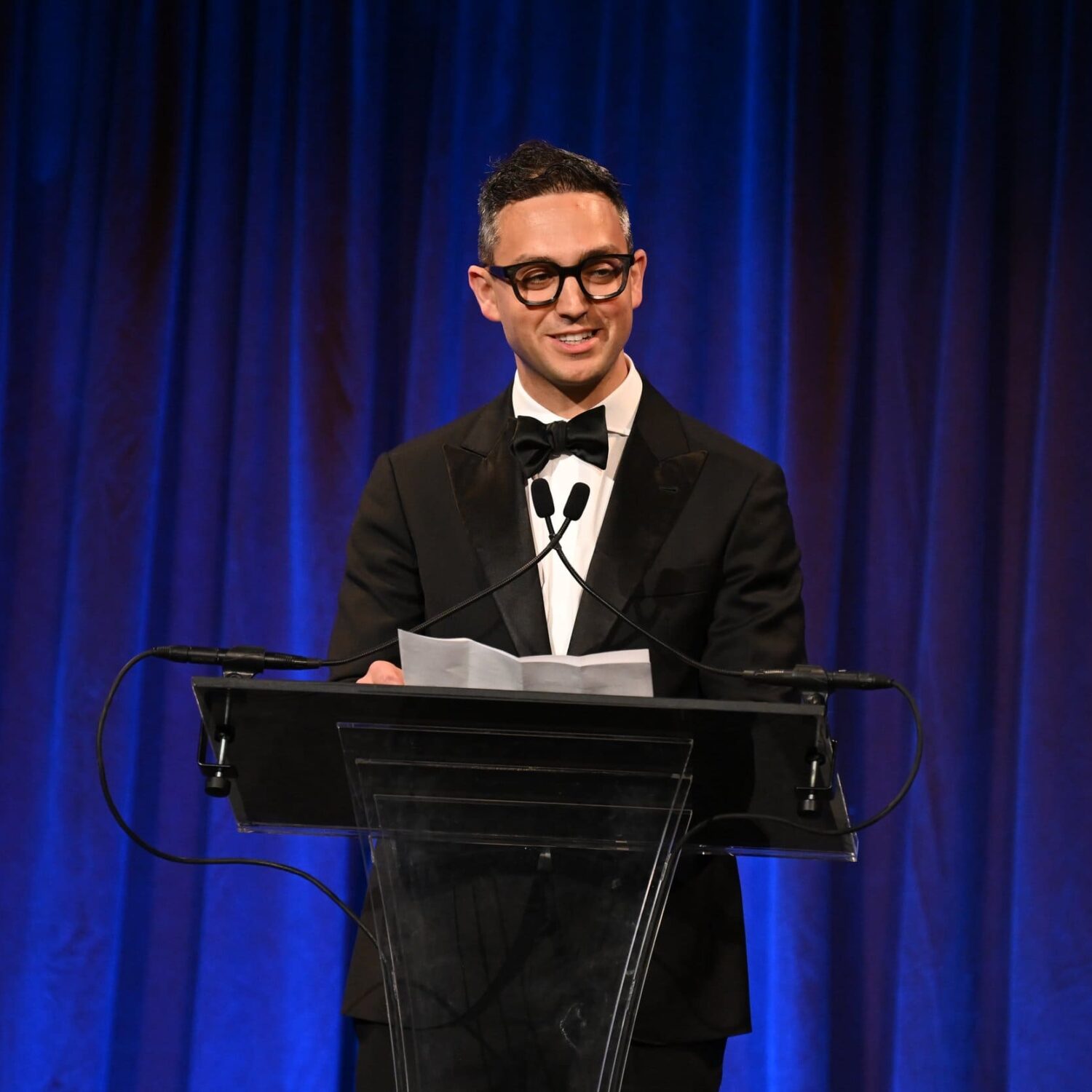From the “Portraits” podcast of theNewyorker, hosted by Claudio Brachino
Born in Perugia, with academic and professional experiences between Europe, China and the United States, Michael Cascianelli is now CEO and Head of School at the Scuola d’Italia Guglielmo Marconi in New York. In this interview, taken from ilNewyorkese’s “Portraits” podcast, he talks about his journey, the educational mission of the school he heads and the role of Italian culture in the globalized world.
Michael, your career path has been full of international experiences. Can you briefly tell us your story?
“I left Umbria at age 19 to study at the Royal Conservatory in The Hague, Netherlands. Then I lived in Scotland, where I began teaching in international schools, and later completed a doctorate at Cambridge University, studying talent development and IQ. After work experience in Rome and China, where I helped establish a bilingual school, I arrived in New York at the height of the pandemic to head the Guglielmo Marconi School of Italy.”
What are the characteristics and mission of the School of Italy?
“Ours is an American nonprofit institution, recognized by the Italian Ministry of Foreign Affairs and Education. We offer a bilingual pathway from kindergarten through high school, allowing our students to obtain both an Italian and international baccalaureate degree. This dual degree gives them unique opportunities to pursue their studies at prestigious universities around the world.”
Bilingualism is a pillar of the school. How does it develop?
“Our curriculum is equally divided between Italian and English. Some subjects are taught exclusively in one language, others in the other. We also place great emphasis on learning additional languages: our students study Spanish and Mandarin from an early age, and in the upper grades we also offer Latin and philosophy. We believe that a multilingual education is essential to cope with an increasingly interconnected world.”
In a context like America, what is the added value of humanistic culture?
“The humanities are at the heart of our cultural identity. In addition to math and science, we believe that the study of Latin, philosophy and literature are fundamental to developing critical thinking and an ethical worldview. Humanities education is a hallmark of Italy and our school. Of course, the scientific-mathematical and logical-mathematical part must also be pushed because it is the basis of many of the jobs of the present and especially will be the basis of those of the future.”
What is the relationship between the school and the Italian community in New York?
“Scuola d’Italia is a hub for the Italian community. About 35-40% of our students come from Italian expatriate families, but we host students from 31 different nationalities. This allows us to create a multicultural environment that reflects the spirit of New York City. Parents actively participate in school life, helping to create a strong sense of community.”
You have lived in different countries and continents. How do you see New York compared to other major global metropolises?
“New York City is unique. It is a city of opportunity and networking, where the best professionals in every field meet. But it is also a city of great contradictions, where extreme wealth and poverty coexist. Because of this, the school not only protects kids, but prepares them to navigate a complex world, giving them the tools to succeed.”
What about from the point of view of safety and livability?
“The quality of life depends a lot on economic opportunities. New York offers amazing experiences, but you have to be able to adapt and find a balance between the opportunities and difficulties that such a competitive city presents.”
Do Italians still have a strong ascendancy in the United States?
“Yes, we are highly appreciated. Our country has always exported excellence, from food to fashion, from creativity to professionalism. Italians abroad are synonymous with quality and reliability, and this opens many doors for us in the business world.”
What subjects are you most proud of at the School of Italy?
“Definitely philosophy and Latin. In the U.S., these subjects are not very popular, but we believe they are fundamental to forming critical and open minds. Teaching philosophy to kids means giving them tools to understand the world and make informed decisions. In general, I’m proud of all the subjects because the teachers are rigorously selected; we care about them very much.”
Looking to the future, what is your professional dream?
“For now I want to continue to grow the School of Italy and enjoy this experience in New York. In the future, we will see where my career takes me, in my presidencies every five years I move from one part of the world to another, certainly New York can be an important springboard for my career.”
The article Michael Cascianelli: In New York we train the leaders of the future in a multicultural dimension comes from TheNewyorkese.

